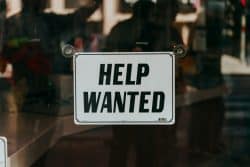Amnesty International, Human Rights Watch, Football Supporters Europe, and the Building and Wood Workers’ International union, among other U.K. human rights organizations, are calling on FIFA to implement a reparations plan for the hundreds of migrant workers whose human rights have been violated in Qatar.
According to these organizations, FIFA should “set aside an amount of no less than $440 million (£356 million) in prize money offered to World Cup participating teams to be invested in funds to support reparations.”
This represents a tiny percentage of the $6 billion in revenue FIFA expects to earn by the end of the World Cup and the $1.6 billion it has already earned in the run-up to the tournament.
FIFA knew that labor rights were violated in Qatar
Amnesty International published a new report ‘Predictable and preventable: Why FIFA and Qatar should remedy abuses behind the 2022 World Cup’ documenting the working conditions of migrant workers in Qatar and the labor abuses related to hosting the tournament in the country.
The report notes that when FIFA awarded the 2022 World Cup to Qatar in 2010, the existence of widespread labor rights abuses was well documented. FIFA knew, or should have known, that the monumental construction work and other services required to host the tournament would fall on the shoulders of low-paid migrant workers at serious risk of exploitation.
Despite these warnings, FIFA awarded the multi-billion dollar event to Qatar without imposing any conditions on the country to strengthen its labor rights protections. Qatar recognized its responsibilities too late and introduced measures benefitting too few workers, thus proving accurate the prediction of preventable abuses that followed.
In an open letter accompanying its report, Amnesty urged FIFA president Gianni Infantino to work with Qatar to establish a comprehensive remediation program. As well as providing compensation for all labor abuses related to hosting the tournament in Qatar, FIFA should ensure that abuses are not repeated, both in Qatar and in future tournaments.
FIFA, in response, said it was “evaluating” the proposals. It said it had put in place “an unprecedented due diligence process” in relation to worker protection and, together with the Qatari Supreme Committee responsible for the tournament, had devised its own redress processes.
In their recommendations in relation to the amount of compensation, humanitarian organizations note that this amount reflects a likely ‘floor’ for the scale of the harm suffered. The final amount required for reparations should be determined by the scale of need, the damage to be repaired, and the reparation measures offered, and should be decided through a participatory process and subject to independent assessment.
England team under pressure
Sacha Deshmukh, director-general of Amnesty International U.K., called on the England soccer team and its manager to support calls for compensation to be paid to migrant workers.
“We hope the FA and Gareth Southgate and the players will back this innovative scheme to secure much-needed compensation for long-suffering workers’ families. “International football can easily afford to do the right thing here. This is a comparatively small share of FIFA’s enormous prize money pot – and it would provide some real redress for the serious human rights violations that underpin this tournament.”
Qatar’s position
The Qatari authorities evaded the organizations’ proposal through statements by the Ministry of Labor, which claimed that “Qatar is proud of the reforms it has introduced” and that progress in labor reforms was “irrefutable.” According to a special report published by The Guardian in February 2021, more than 6,500 migrant workers from India, Pakistan, Nepal, Bangladesh, and Sri Lanka have died due to unsafe working conditions since Qatar began preparing for the 2022 FIFA World Cup in 2010.
The changes made to date are insufficient to protect migrant workers, and we are currently campaigning to take further steps to end forced labor by urging the Qatari government to take several measures.
Watch Freedom United’s special event with activist Malcolm Bidali and labor rights expert Nick McGeehan exploring what still needs to change in Qatar ahead of, and beyond, the World Cup in November.







Freedom United is interested in hearing from our community and welcomes relevant, informed comments, advice, and insights that advance the conversation around our campaigns and advocacy. We value inclusivity and respect within our community. To be approved, your comments should be civil.